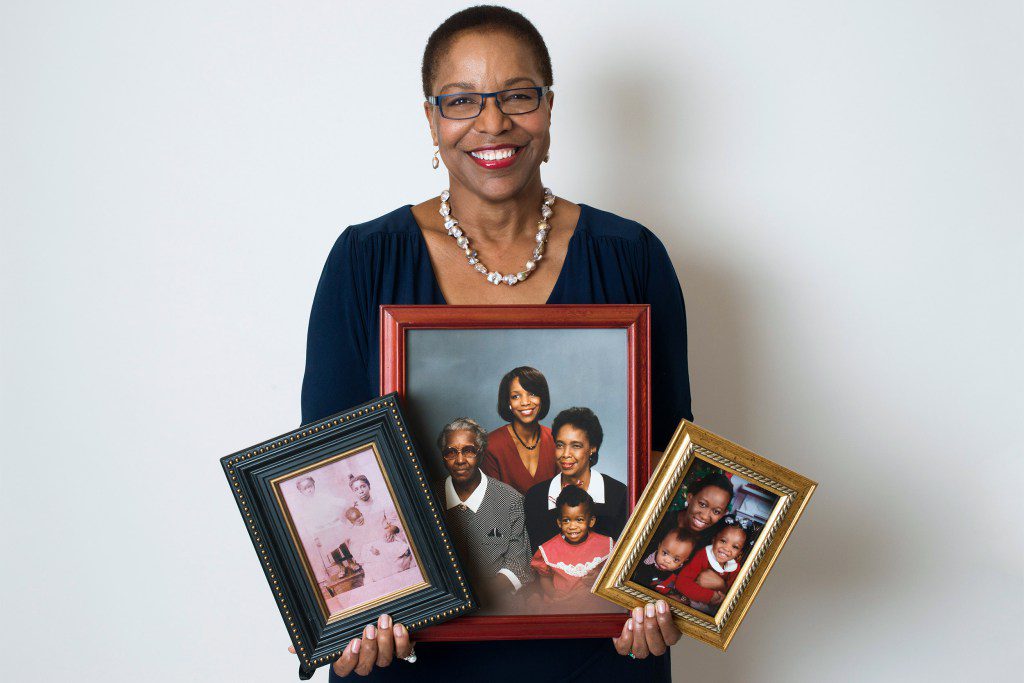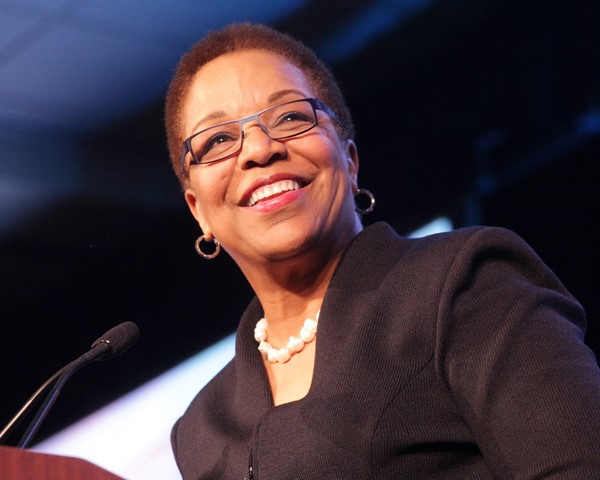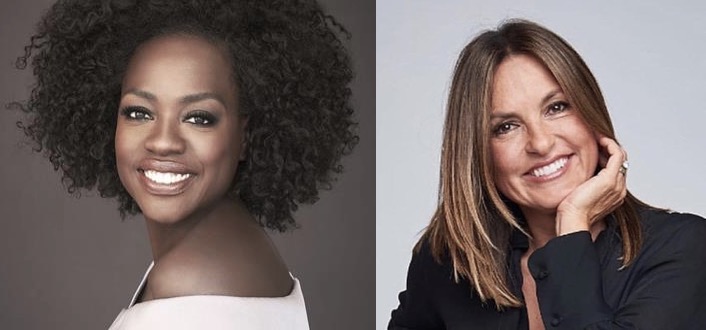In nearly 30 years leading diversity initiatives at Harvard Medical School (HMS), Joan Reede has helped scores of mentees advance their academic careers, inspired thousands of young people to consider a future in medicine and science, and encouraged HMS to embed diversity and inclusion into its mission.
As dean for diversity and community partnership, Reede is considered by many at HMS to be the heart and soul of diversity efforts at the School, by virtue of her keen intelligence, warm personality, ability to coalesce resources, and passion for equity and social justice — and for her penchant, as a trained pediatrician, for helping people realize their full potential.
“Harvard Medical School is so lucky to have her,” said Nawal Nour, associate professor of obstetrics, gynecology, and reproductive biology at Brigham and Women’s Hospital (BWH), who has known Reede for 20 years as a mentee and colleague. “I have had the opportunity to work with Joan many times over the course of my tenure at BWH and HMS, and what makes her so unique is her ability to motivate and inspire those around her to share and continue the great work that she does. She is absolutely amazing.”
Reede deflects credit for her accomplishments, preferring to focus on the team effort. “This is a story about we. I have done nothing by myself,” she said.
That concept is echoed in the “Better Together” slogan of the School’s 38-member Task Force on Diversity and Inclusion, appointed by HMS Dean George Q. Daley and led by Reede, who is also HMS professor of medicine at Massachusetts General Hospital.
But there’s no denying that Reede, working with colleagues in the Office for Diversity Inclusion and Community Partnership and beyond, has built a wide-ranging body of programs designed primarily to promote the recruitment, retention, and advancement of diverse faculty — especially those from groups underrepresented in medicine, such as women, LGBT, and people living with disabilities.
From fellowships in minority health policy to visiting clerkships for medical students of color to career exploration for Boston-area middle schoolers, these 20-plus programs have touched tens of thousands of individuals, directly or indirectly. Reede’s office oversees all diversity-related activities involving HMS faculty, trainees, students, and staff.
“She’s like a national treasure,” said longtime mentee Kathryn Hall, HMS assistant professor of medicine at Brigham and Women’s. “There are not many people who have been as effective for so long. It’s a testament to her will and determination and vision.”
Equity, justice and ‘The Ladies’

Driven by issues of equity and justice, and not by diversity for diversity’s sake, Reede believes every person has something worthwhile to contribute to HMS. She traces her values to “The Ladies,” three strong black women who guided her while growing up on the South Shore of Boston: her grandmother, her mother, and “Aunt” Amanda.
Reede noted that her grandmother cleaned houses in the segregated South, had an elementary school education, and was raised by her great-grandmother, who was born into slavery. Reede’s mother earned her college degree when Reede graduated medical school, and was “probably the smartest person I’ve ever known,” she said. And the woman Reede called Aunt Amanda graduated from Radcliffe College, likely in the 1920s, and taught her about the power of people uniting for social change. “The Ladies” encouraged Reede to dream big but also kept her grounded.
“These three women, who were very different in terms of their educational background, treated each other with equal respect,” she recalled. “I’m very much engaged in community, very much believe in treating everyone the same, very much believe that your life should have purpose. And that came from those three amazing women.”
Diversity and inclusion are core to academic medicine and lead to better decisions, science, and patient outcomes, according to Reede. “When you have complex issues, linear and siloed thinking will not give you as good a result as having multiple voices, perspectives, and backgrounds at the table,” she said. “That’s part of what diversity brings. We do better when there’s a we.”
HMS’ dean agreed. “Joan has recognized for many decades that for Harvard Medical School to be a leader in research, education, and service, we must reflect the diversity of our patients, our community, and our nation,” said Daley, who is also the Caroline Shields Walker Professor of Medicine.
“She founded the HMS Minority Faculty Development Program back in 1990 and has worked tirelessly since then to create programs that promote the recruitment, retention, and advancement of underrepresented faculty at HMS. Her determination, spirit, and vision make her an inspiration to all of us. She has served as a true guiding light in our quest to create the diversity and inclusion at HMS that will, in the long run, advance our research endeavors and improve the health care we are able to provide to all people,” he said.
SOURCE: The Harvard Gazette
You may also like
-
Don’t Miss Boston’s Premiere Beauty Show
-
Purchase Your Tickets for ‘Emanuel’ in Theaters June 17 and 18 Only
-
Rihanna is the World’s Richest Female Musician with a Reported $600 Million Fortune
-
Sara Gilbert explains why she’s leaving ‘The Talk’
-
Beyonce’s Netflix Documentary ‘Homecoming’ Raises The Bar For Concert Films






